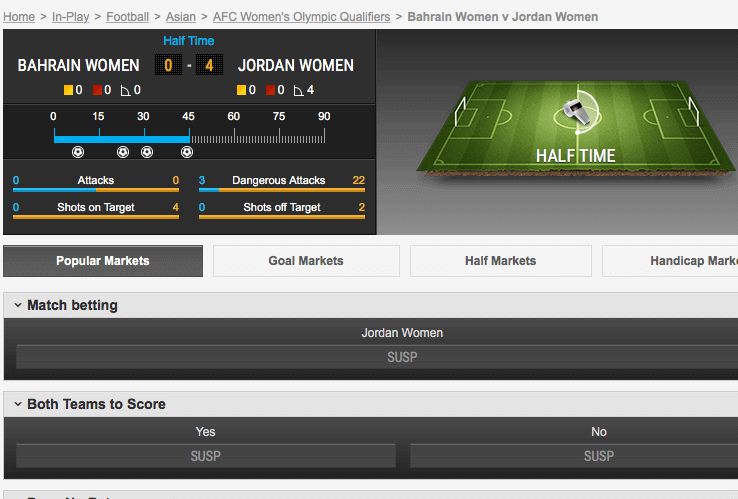As interest in online betting grows, so do the technological advancements that enhance user experience. Interactive features and comprehensive mobile apps allow bettors to enjoy wagering on the go, reflecting the increasing demand for flexibility and convenience. This progressive industry continues to innovate and adapt to meet the expectations of its users.
The UK has a thriving online gambling market, with a plethora of betting sites to choose from. Here are the top 10 betting sites in the UK for 2025, based on a range of factors including welcome bonuses, odds levels, live and streaming platforms, and more.
The landscape of online bookmakers is continuously evolving, with new platforms entering the market. These new betting sites often bring fresh features and enticing promotions tailored to attract new customers. Additionally, established platforms continue to enhance their services, providing competitive odds and various sports markets to meet diverse preferences.
For those interested in exploring these opportunities, detailed comparisons and expert reviews can aid in selecting the ideal site. Resources like the list of UK betting sites offer insights into which bookmakers maintain high standards of trustworthiness and quality, ensuring a satisfying betting experience.
Having years of experience in the UK sports betting industry, we have an in-depth knowledge of the trends and demands in the respective market. Our experts are well-acquainted with the rules and regulations in sports betting and scrutinise a betting site accordingly.
Our main criteria for rating a sportsbook depends on the variety of markets, odds quality, range of betting types, customer service quality, convenience of payment options, multi-platform compatibility, additional features, and so on. We also like to put the safety and security related aspects on top of our priorities. Therefore, you can remain assured of the licensed and regulated new UK sports betting sites as you go through our recommendations.
When selecting a betting site, several key factors should be considered to ensure a positive experience. These include understanding the odds and potential payouts, verifying security and licensing, and ensuring the platform offers a user-friendly interface that is mobile compatible.
A critical aspect of online betting is grasping how odds work and what potential payouts they offer. Odds are usually presented in fractional, decimal, or American formats, each expressing the probability and return differently. For instance, fractional odds of 5/1 mean a £1 stake could yield a £5 profit. Understanding these odds helps users make informed choices and gauge potential winnings.
Additionally, some platforms offer odds boosts or enhanced odds on specific events, which can significantly increase potential returns. Consideration of payout speed is also essential, as different bookmakers might have varying withdrawal times. Choosing a site with quick payout times ensures bettors receive winnings promptly without unnecessary delays. Evaluating the range of available betting markets is also crucial, enabling users to diversify bets across different sports and events.
Security should be a paramount concern when choosing a betting site. Reliable bookmakers are typically licensed and regulated by respected authorities, such as the UK Gambling Commission. These licences ensure that the site operates fairly and securely, protecting users’ personal and financial information from fraud and scams.
Licensed sites often provide SSL encryption and robust security measures to safeguard transactions. It’s also important to verify if the betting site adheres to responsible gambling practices. They should offer tools like deposit limits and self-exclusion options to help manage betting activities responsibly. Users should also check if customer support is available for issues regarding security and usage, preferably through multiple channels like live chat, email, or phone.
A user-friendly interface significantly enhances the betting experience. Well-designed sites feature intuitive navigation, making it easy for users to locate events, place bets, and manage accounts. The site should offer clear instructions and support for novice and experienced bettors alike.
Mobile compatibility is equally crucial, as it allows users to place bets on the go. Leading bookmakers offer mobile apps or mobile-friendly websites that mirror the functionality of their desktop counterparts. These platforms maintain seamless integration and performance across devices. Bettors can benefit from notifications, live streaming options, and mobile-exclusive promotions, which enhance the mobile betting experience.

Tennis – It is not just once a year during the two weeks in which Wimbledon takes place in South West London when betting on tennis is popular, with tournaments taking place throughout the year, attracting the attention of punters in the process. All WTA and ATP Tour events are available to bet on, along with less high-profile matches from the Challenger and Futures, with customers being able to back their favourite players with a bet on the match winner, correct score and total games, with the number of markets only increasing when in-play comes into play.

Cricket – Following England’s success at the 2019 ODI World Cup, betting on cricket has seen a significant boom, with T20, One Day and Test matches taking place across the globe on a daily basis. Tournaments including the Indian Premier League and The Hundred have only added to the popularity of cricket betting, with punters being able to bet on markets such as leading batsman, top wicket taker, to score a century, total runs and even to win the toss.
Sensibly, the ‘right’ bookmaker for you is one that covers all the sports on which you want to bet. The best betting sites cover not only the most popular sports, such as football and horse racing, but also tennis, golf, greyhound racing, cricket, esports, boxing and even ‘niche’ sports such as darts or snooker. Nevertheless, it’s worth investigating to what extent, if at all, your favourite sport, or sports, are covered before signing up with any online sports betting operator.
Once you’ve found a betting site that offers the markets on which you want to bet, you’ll want to know that the odds you’re offered are competitive and represent value for money. The easiest way to do is to look at an odds comparison site, such as oddschecker.com, which lists the odds available from all the major online bookmakers side-by-side and highlights the longest odds available for each outcome. If your chosen bookmaker is consistently best, or joint best, all well and good, but if not, you might want to think about choosing another bookmaker or opening multiple accounts.
Generally speaking, the longer a sports betting operator has been in business, the less likely you are to experience problems with basic operations such as, opening an account, depositing or withdrawing funds or placing a bet. Of course, problems can still occur, but whatever your grievance, it is in the best interest of the sports betting operator to act quickly to prevent potential damage to its reputation. Even the largest betting operators can’t afford to lose customers because of poor customer service. Those who fail to take responsibility for their mistakes, and or fail to respond quickly enough, in what is often a time-sensitive environment, will soon earn a bad reputation.
If you have a dispute with an online bookmaker that cannot be resolved by the usual internal dispute procedures, you can refer the dispute to the Independent Betting Adjudication Service (IBAS). As the name suggests, IBAS is a third-party, impartial adjudicator, but its rulings are binding on all parties.
As mentioned above, online sports betting is a dog-eat-dog business, so online bookmakers will do just about anything in their power to attract and retain new customers. They may for example, offer to match your initial deposit up to 100%, or offer to refund your first bet as a free bet if it loses, up to a specified maximum amount. Another popular ploy is to offer ludicrously long odds on the outcome of a sporting event, to a maximum stake of say, £1.00, £5.00 or £10.00, and pay out a portion of the bet above the regular much shorter odds as one or more free bets. Other ongoing, ‘loyalty’ bonuses include your money back as a free bet if your horse is beaten by a nose, falls at the first fence, refuses to race and so on. All these offers increase your initial bankroll and give you more chances of winning.

Live, or ‘in-play’ betting allows you to bet on a sporting event, such as a football match, after it has started. Most established sports betting sites, for example Ladbrokes, offer a comprehensive selection of live markets, including events that aren’t televised. The best betting sites also offer live video streaming of selected events, which goes hand-in-hand with in-play betting, insofar as you can watch, as well as bet on, your chosen sport. Depending on your bookmaker, you may need to have funds in your account, or bet a nominal amount on the event being covered to watch live video streaming. Check the terms and conditions to avoid disappointment.


Due to their being so much choice when it comes to betting sites, we use strict criteria to separate the best from the rest. Due to such competition, odds, promotions and additional features are now better than ever too, whether you are a new or existing customer. All in all, the following factors are taken into consideration when looking at the best betting sites:
![]() Licensing – All of the bookmakers discussed on our site hold valid gambling licenses from respected authorities. Those based in the UK should look out for a license from the British Gambling Commission, who are responsible for regulating the market for sports betting, as well as keeping gambling free from crime and protecting against underage betting. At present, there are around 1,000 active licenses for gambling platforms in the UK.
Licensing – All of the bookmakers discussed on our site hold valid gambling licenses from respected authorities. Those based in the UK should look out for a license from the British Gambling Commission, who are responsible for regulating the market for sports betting, as well as keeping gambling free from crime and protecting against underage betting. At present, there are around 1,000 active licenses for gambling platforms in the UK.
![]() Odds & Pay-Outs – Those looking to be successful when it comes to betting on sporting events need to know that they are taking advantage of the best odds around, as well as some significant pay-out percentages.
Odds & Pay-Outs – Those looking to be successful when it comes to betting on sporting events need to know that they are taking advantage of the best odds around, as well as some significant pay-out percentages.
![]()
Markets – The best betting sites also offer a wide range of sports markets, including popular events from the world of football, horse racing and tennis, among others. As a result, it is important to select a bookmaker who delivers in the areas in which you hold an interest and knowledge of.
![]() Additional Features – Many betting sites now offer a range of features away from simply placing bets, which only make the whole experience all the more exciting and enjoyable. Features including live streaming, in-play betting and cash out should all be on offer.
Additional Features – Many betting sites now offer a range of features away from simply placing bets, which only make the whole experience all the more exciting and enjoyable. Features including live streaming, in-play betting and cash out should all be on offer.
![]()
Promotions – Locating a bookmaker who regularly offer promotions is also of importance to punters, with such offers helping players to maximise winnings and minimise losses. Whether it be a matched deposit welcome bonus or best odds guaranteed on a particular sport, the best betting sites satisfy the demands of customers in this area too.
![]()
Banking – A range of options are generally available to punters when it comes to depositing and withdrawing funds, whether it be a major credit/debit card or an increasingly popular e-wallet platform. Meanwhile, the best betting sites do not charge any additional fees for processing such transactions.
While there are certainly other factors to consider when registering with a bookmaker, the points discussed are the most important in our opinion. We have sports betting portals in several countries. Check also our portals in:
The British market is undoubtedly one of the leading industries when it comes to online betting, with a huge history of high street betting shops having lead to a significant online presence also.
Betting sites such as Ladbrokes, Coral and Bet365 all have a large amount of experience, helping them to attract new customers on a daily basis. Along with their history, such platforms also offer a range of appealing features, whilst they are nothing but reliable and trustworthy.
Despite there being a number of traditional bookmakers who still offer excellent betting sites, there are also a significant amount of up-and-coming platforms to keep an eye on in 2019. Such sites are able to make an impact within the industry due to focusing upon a particular area of sports betting, whether it be a certain market or offering an exiting feature.
LeoVegas are an example of a new betting site making waves at present, largely due to their excellent options for mobile customers. Those bookmakers who place a strong focus upon mobile betting are likely to achieve success, due to the number of punters now wagering when on the move.
With football being the most popular sport to bet on in the UK, it comes as little surprise that many betting sites offer a range of options surrounding the beautiful game. In order to find the best football betting sites, it is important to take into consideration the following factors:
Bet365 are undoubtedly one of the best options when it comes to football betting, with the well-known bookmaker offering a range of features to players. As well as the ability to follow a large number of matches via their live-streaming service, punters can also cash out bets when things do not quite turn out as planned. Elsewhere, another betting site who perform well when it comes to football is Betway, who offer a variety of promotions in this area. Perhaps the standout promotion from Betway is their Free Bet Club.
Those who are registered with Betway are able to earn £10 worth of free bets each week, which is earned by spending at least £25 on trebles or higher during the same seven days. Available to both new and existing customers, simply opt in before placing qualifying bets, with a potentially lucrative free bet being won with relative ease.
Virtually all betting sites operating online today will offer some form of promotion, with many different types being available to punters. Such offers generally come with terms and conditions that must be adhered to, which can potentially effect your ability to ultimately make withdrawals. Whether you are a new or existing customer, here are the most common and popular forms of betting offer found online today:
There is possibly nothing better than receiving a free bet from your bookmaker. Free bets are distributed as part of a welcome bonus normally, however they are also available to existing customers from time to time also. A free bet is an amount of money in which your bookmaker will give you in order to use on their betting site. Those who place successful bets will be able to keep the winnings, however not the free bet amount in general. Meanwhile, there are often wagering requirements surrounding such offers.
A deposit bonus is available to punters who process a deposit of a certain amount with their bookmaker. The bookie will normally offer a percentage bonus on top of your deposit, ranging between 25% to 200%. Meanwhile, a matched deposit bonus is one featuring a 100% bonus.
Meanwhile, a no deposit bonus is delivered to players who simply register a new account with a bookmaker, however these are very rare nowadays. Such promotions also come with certain restrictions.
Now that you fully understand the different forms of promotions available with betting sites today, it is time to discover exactly how to take advantage of them, with a number of terms and conditions generally surrounding them. The following are among the most important factors to consider when looking to utilise an offer from a betting site:
The first thing in which you will notice when looking at bookmaker promotions is the type of offer that is available, along with the total amount available. However, it is important to consider the terms and conditions surrounding such offers, which tend to increase with the amount of bonus available. Punters looking to earn significant winnings should be prepared to part with a large amount of cash before unlocking their funds.
The majority of offers will also come with conditions surrounding the amount of time in which the total bonus amount must be wagered before withdrawals can be made. Some betting sites will make things relatively easy in this area, however others will make it more difficult to ultimately process withdrawals off the back of such promotions.
Elsewhere, the minimum odds that must be met is another important consideration for punters, with bookmakers setting the lowest acceptable price when it comes to placing qualifying bets. Minimum odds tend to sit somewhere between 2/5 to EVS.
Punters must generally complete any wagering requirements within a stipulated time period, which can range between anything from 7 days to 30 days. Failure to do so will normally result in the bonus becoming void.
Some bonuses must be unlocked by entering a promo code upon either depositing funds of placing qualifying bets, so be sure to keep an eye out for such codes beforehand.
Online betting has become increasingly popular in recent years, but with its growth comes the need for regulation and legal oversight. In the UK, online gambling is legal and regulated by the Gambling Commission. This ensures that players are protected and that gambling companies operate in a responsible manner.
One of the key aspects of online betting regulation is player protection. This includes measures to prevent underage gambling, ensuring that players can set limits on their gambling activity, and providing resources for those who may have a gambling problem. Online gambling companies must also take steps to prevent money laundering and ensure that their operations are not used to fund criminal activity.
In addition to player protection, online betting is subject to taxation. In the UK, gambling operators are required to pay a tax on their profits. This tax revenue is used to fund public services such as healthcare and education.
It’s important to note that not all countries have the same regulations around online betting. In some countries, online gambling is illegal, while in others it may be legal but unregulated. It’s important for players to understand the legal landscape in their country and to only gamble on licensed and regulated websites.
Overall, the legal aspects of online betting are complex and vary depending on the country in question. However, in the UK, players can be confident that the industry is well-regulated and that their interests are protected.
When it comes to online betting, there are several strategies that can help increase your chances of winning. Here are three key strategies to keep in mind:
One of the most important aspects of successful online betting is proper bankroll management. This means setting aside a specific amount of money for betting and sticking to that budget. It’s important to never bet more than you can afford to lose and to avoid chasing losses by increasing your bets in an attempt to win back money.
A good rule of thumb is to limit each bet to no more than 5% of your total bankroll. For example, if you have a bankroll of £100, you should limit each bet to £5 or less. This helps to minimize your losses and ensure that you have enough money to continue betting over the long term.
Another important aspect of successful online betting is understanding how odds work. Odds represent the likelihood of a particular outcome occurring in a sporting event. The higher the odds, the less likely the outcome is to occur.
It’s important to understand how to read odds and to know the difference between decimal, fractional, and American odds. This will help you make informed betting decisions and identify value bets that offer a good return on your investment.
There are many different betting systems that can be used to increase your chances of winning. Some popular betting systems include the Martingale system, the Fibonacci system, and the Labouchere system.
It’s important to remember that no betting system is foolproof and that there is no guaranteed way to win at online betting. However, using a betting system can help you stay disciplined and make more informed betting decisions.
Overall, successful online betting requires a combination of proper bankroll management, understanding odds, and using effective betting systems. By following these strategies, you can increase your chances of winning and enjoy a more rewarding online betting experience.
Online betting has become increasingly popular in recent years, with many people enjoying the convenience and excitement of placing bets online. However, there are also potential risks associated with online betting that individuals should be aware of before engaging in this activity. This section will discuss two of the main risks associated with online betting: gambling addiction and fraud and scams.
One of the biggest risks associated with online betting is the potential for individuals to develop a gambling addiction. Online betting can be highly addictive due to the ease and convenience of placing bets from anywhere at any time. This can lead to individuals spending more money than they can afford and becoming trapped in a cycle of addiction.
To mitigate the risk of developing a gambling addiction, it is important for individuals to set limits on their betting activity and to seek help if they feel that their gambling is becoming problematic. Many online betting sites offer tools to help individuals set limits on their betting activity, such as deposit limits and self-exclusion options.
Another risk associated with online betting is the potential for fraud and scams. Online betting sites can be targeted by fraudsters who seek to steal personal and financial information from users. This can include phishing scams, where individuals are tricked into entering their login credentials or other sensitive information on a fake website.
To protect themselves from fraud and scams, individuals should ensure that they only use reputable online betting sites that are licensed and regulated by the relevant authorities. They should also be wary of any unsolicited emails or messages that ask for personal or financial information, and should never share this information with anyone else.
In summary, while online betting can be a fun and exciting activity, it is important for individuals to be aware of the potential risks associated with this activity. By setting limits on their betting activity and using reputable online betting sites, individuals can help to mitigate these risks and enjoy a safe and enjoyable betting experience.
We have put forward a number of appealing betting sites on this page, however there are undoubtedly some operators which punters should avoid at all costs. While we will not name specific names, any bookmaker which is not licensed by the UK Gambling Commission should not be utilised, while those with poor reputations when it comes to security, payouts and customer support are also worth dodging.
Having read all of this information regarding sports betting and the use of online betting sites, you may have been left wondering as to just why you can trust our bookmaker reviews. We are all about transparency, as we understand that trust is a major issue when it comes to bookmaker reviews and betting tips.
However, it is important to remember that we have a vast amount of experience within the industry, as well as a great level of knowledge in terms of the services and features offered by bookmakers.
In conclusion, there are many great betting sites available in the UK for those who enjoy online gambling. Each site has its own strengths and weaknesses, and it is up to the individual to decide which one is the best fit for their needs.
Based on the research and analysis presented in this article, some of the top betting sites in the UK include Bet365, Ladbrokes, William Hill, Betfair, and Paddy Power. These sites offer a wide range of sports and events to bet on, competitive odds, and user-friendly interfaces.
It is important to note that online gambling can be addictive and should be approached with caution. It is recommended that individuals only gamble what they can afford to lose and seek help if they feel they may have a problem.
Overall, the UK has a thriving online betting industry with many reputable and trustworthy sites to choose from. With proper research and responsible gambling practices, individuals can enjoy the excitement and potential rewards of online betting.